Find Help
More Items From Ergsy search
-
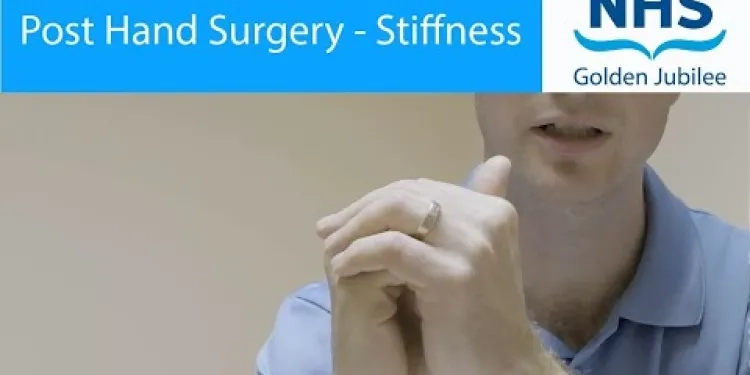
Post hand surgery - Stiffness management and trigger finger
Relevance: 100%
-
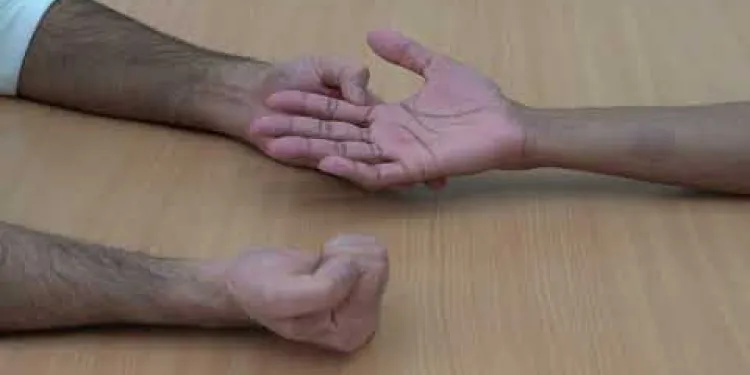
Trigger Finger exam
Relevance: 53%
-
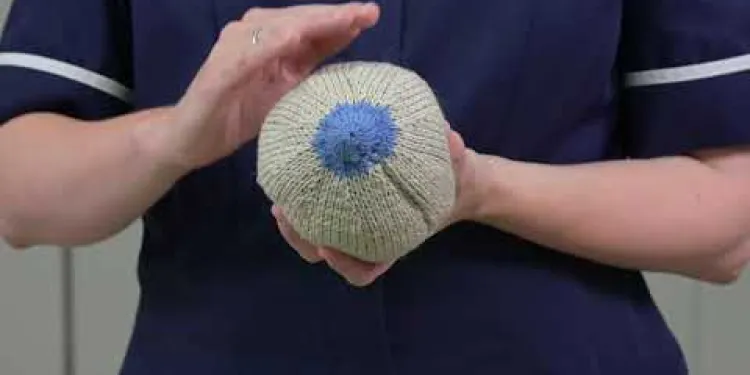
Hand expressing
Relevance: 28%
-

Heart Failure : When the heart becomes stiff?
Relevance: 20%
-

What is the recovery time after Carpal Tunnel Surgery?
Relevance: 20%
-

Can lifestyle changes help manage Carpal Tunnel Syndrome?
Relevance: 19%
-
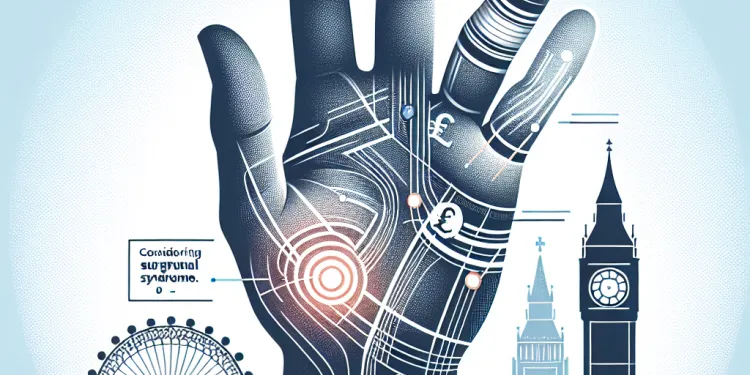
When should I consider surgery for Carpal Tunnel Syndrome?
Relevance: 18%
-

What triggers asthma attacks?
Relevance: 18%
-

What does Carpal Tunnel Syndrome surgery involve?
Relevance: 18%
-
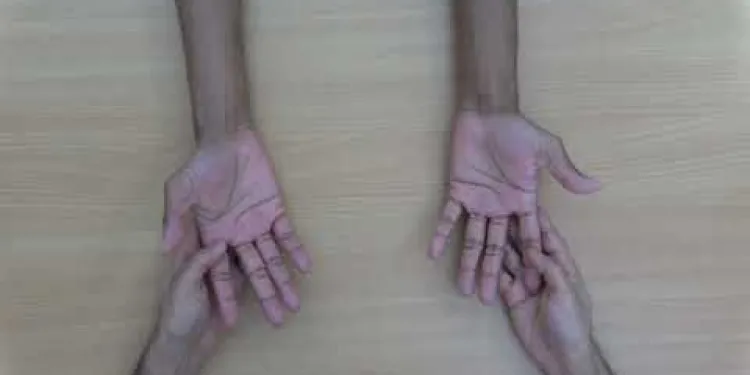
Dupuytrens
Relevance: 18%
-

Is it possible for hackers to use my social media posts to cause harm?
Relevance: 18%
-

Factors that trigger eczema in your child
Relevance: 17%
-

Can stress trigger psoriasis flare-ups?
Relevance: 17%
-

Can exercise trigger asthma symptoms?
Relevance: 17%
-

What triggers a cold sore outbreak?
Relevance: 17%
-

Can stress trigger shingles?
Relevance: 17%
-
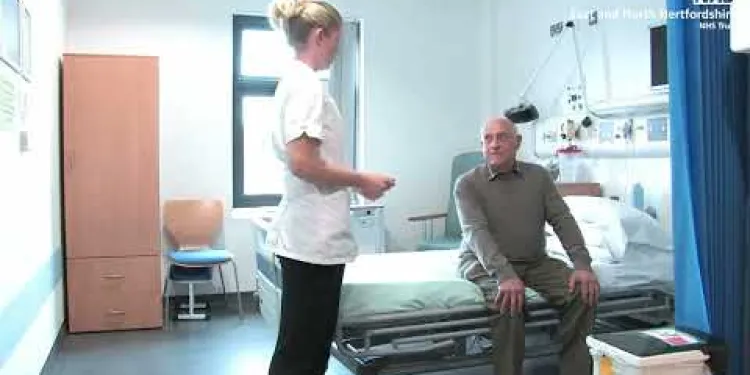
A journey to hip surgery
Relevance: 17%
-

Do I need to send anything by post when filing online?
Relevance: 16%
-

What foods can trigger nettle rash?
Relevance: 16%
-
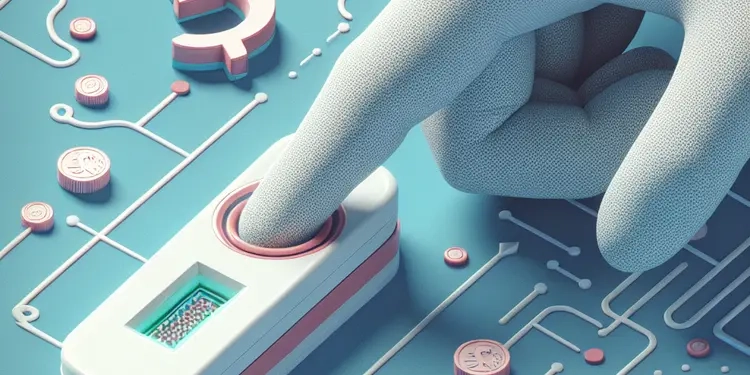
What is the finger prick blood test for Alzheimers?
Relevance: 16%
-

What are the common symptoms of Carpal Tunnel Syndrome?
Relevance: 16%
-
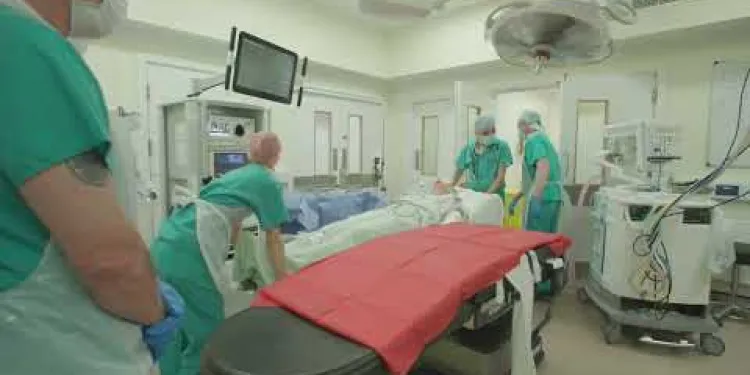
Prostate Surgery
Relevance: 15%
-

Are there specific exercises that can help with Carpal Tunnel Syndrome?
Relevance: 15%
-

What is Carpal Tunnel Syndrome (CTS)?
Relevance: 15%
-
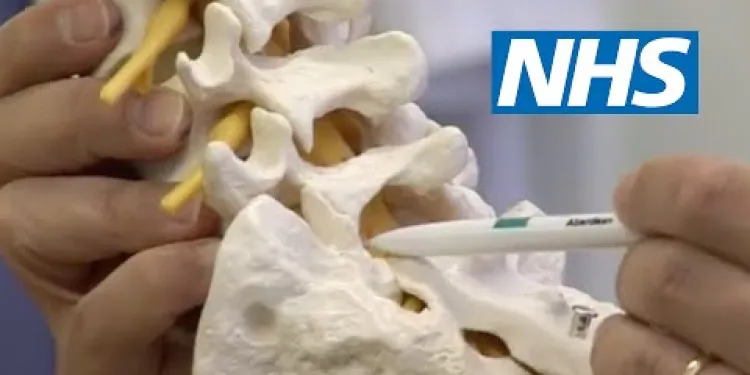
Lumbar surgery | NHS
Relevance: 15%
-

When is surgery recommended for BPH?
Relevance: 15%
-
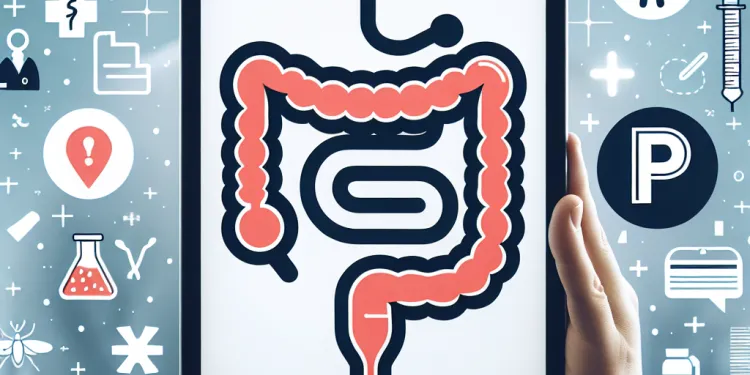
Is surgery necessary for Crohn's disease?
Relevance: 15%
-
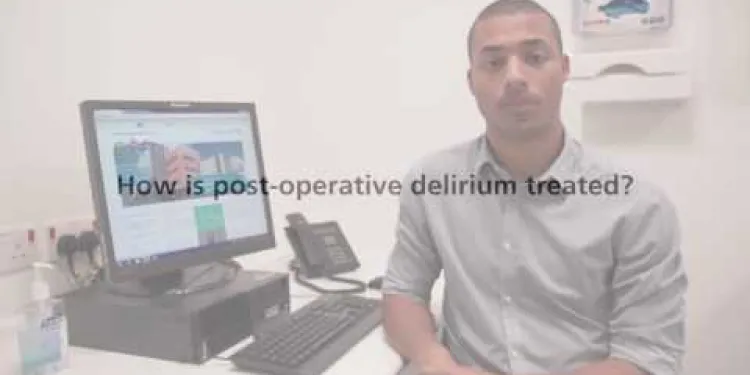
Experiencing delirium after surgery
Relevance: 15%
-

Prolapse Management
Relevance: 15%
-

Weight Loss Surgery
Relevance: 15%
-

Can stress trigger shingles?
Relevance: 15%
-
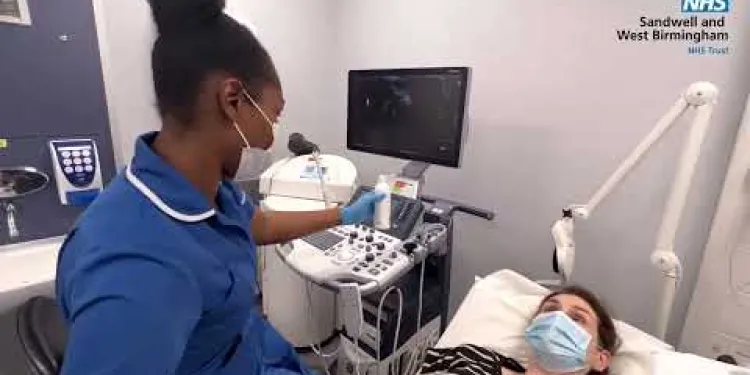
Post Menopausal Bleeding Clinic | A Guide to What Happens at An Appointment
Relevance: 14%
-

Can physical exertion trigger a heart attack?
Relevance: 14%
-
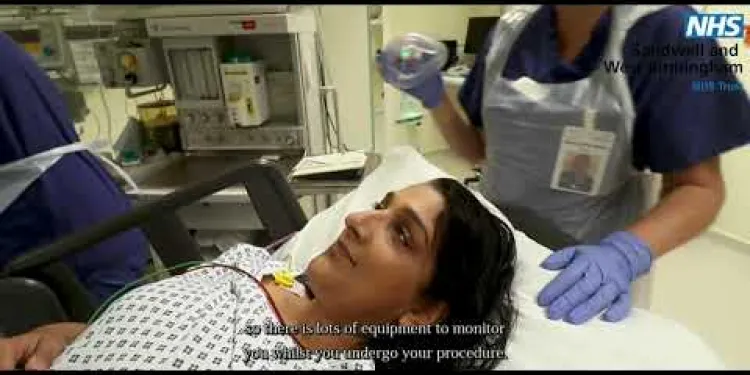
What to expect when visiting our hospitals for surgery | Theatres
Relevance: 14%
-

Evidence-Based Interventions: haemorrhoid surgery
Relevance: 14%
-

Managing and treating your child's eczema
Relevance: 14%
-

What is the role of pain management in treating whiplash?
Relevance: 14%
-

What are the side effects of prostate cancer surgery?
Relevance: 14%
-
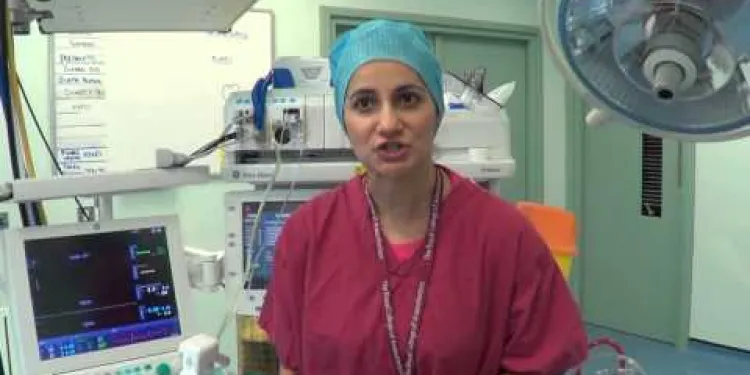
Enhanced Recovery After Surgery in Forth Valley
Relevance: 13%
-

How do I prepare for hip replacement surgery?
Relevance: 13%
Post Hand Surgery: Stiffness Management and Trigger Finger
Understanding Post-Surgery Stiffness
Experiencing some degree of stiffness following hand surgery is not uncommon. This stiffness can affect your ability to perform daily tasks and can feel challenging. Hand stiffness occurs when the tissues surrounding the joints become less elastic, often due to inflammation, scar tissue formation, or simply the normal healing process. In the United Kingdom, where timely access to physical therapy might vary, understanding some strategies to manage this condition at home can be beneficial.
Steps to Manage Stiffness
After hand surgery, gradual and controlled exercises are crucial for regaining full range of motion. Physical therapy is often recommended, utilizing tailored exercises specifically designed to enhance flexibility and strength. To supplement professional care, consider mild heat application before exercising to increase flexibility. After activity, icing can reduce inflammation. Maintaining a strict schedule of exercises, as recommended by a healthcare professional, is vital to ensure optimal recovery. Regular follow-up with your GP or a physiotherapist can also provide guidance on adjusting your routine for best results.
Addressing Trigger Finger Post-Surgery
Trigger finger, or stenosing tenosynovitis, is a condition where one of your fingers catches or locks in a bent position and can often occur postoperatively. In the UK, non-invasive measures often begin with resting the affected finger and wearing a hand splint at night to keep your finger in a neutral position, helping to eliminate inflammation and provide relief. If these measures do not prove effective, your doctor may recommend a corticosteroid injection. In some cases, another surgical intervention may be necessary if symptoms persist.
When to Seek Further Help
While some stiffness and discomfort post-surgery is normal, excessive or prolonged symptoms should prompt a consultation. If you experience persistent difficulty in moving your hand, increased pain, or if the finger remains locked despite conservative treatments, it is crucial to seek medical advice. Your local NHS services or private hand therapy clinics in the UK can offer additional examinations and consider further therapeutic options.
Conclusion
Managing post-surgery stiffness and trigger finger effectively involves a combination of therapeutic exercises, medical interventions, and close monitoring of symptoms. By working proactively with healthcare providers in the UK, you can enhance recovery and return to normal activities with improved hand function. Always follow professional medical advice and report any unusual symptoms promptly to ensure the best possible outcome.
Post Hand Surgery: Handling Stiffness and Trigger Finger
Why Your Hand Might Feel Stiff After Surgery
It is normal for your hand to feel a bit stiff after surgery. This might make it hard to do everyday things. Your hand might feel stiff because the tissues around your joints are less stretchy. This can happen because of swelling, scar tissue, or as part of healing. In the UK, seeing a therapist might take time, so here are some simple things you can do at home to help.
How to Make Your Hand Feel Better
After surgery, doing gentle exercises can help your hand move normally again. Your doctor might tell you to do special exercises to make your hand strong and flexible. You can also use a warm cloth on your hand before exercising to make it more stretchy. After exercising, put something cold on it to reduce swelling. Keep doing the exercises your doctor tells you to do, and visit them or a therapist to learn the best way to get better.
Dealing with Trigger Finger After Surgery
Trigger finger makes your finger get stuck in a bent shape. This can happen after surgery. In the UK, doctors might first tell you to rest your finger and use a splint at night to keep your finger straight. This can help with swelling and pain. If this doesn't work, the doctor might give you a special injection. Sometimes, another small surgery is needed if the problem doesn’t go away.
When to Ask for More Help
Some pain and stiffness after surgery is normal. But if it is very bad or doesn't get better, you should see a doctor. If you can't move your hand well, have more pain, or your finger stays stuck, it is important to talk to a doctor. You can visit your NHS doctor or a private clinic in the UK for more help and treatment options.
Conclusion
Getting better after hand surgery takes exercises, medical help, and watching your symptoms. By working with doctors and therapists in the UK, you can get back to doing everyday things with your hand. Always follow what your doctor says and tell them if anything unusual happens to make sure you get better.
Frequently Asked Questions
What causes stiffness after hand surgery?
Stiffness after hand surgery can be caused by swelling, scar tissue formation, and a lack of movement during the healing process. It's important to follow your surgeon’s aftercare instructions to minimise stiffness.
How can I reduce stiffness in my hand post-surgery?
To reduce stiffness, engage in recommended physical therapy or hand exercises, keep your hand elevated to reduce swelling, and follow your surgeon’s advice on movement and splint use.
Is it normal to have limited movement after hand surgery?
Yes, experiencing limited movement is common shortly after hand surgery due to swelling and discomfort. Movement typically improves with time and appropriate therapy.
How long does stiffness last after hand surgery?
The duration of stiffness varies but it often improves within a few weeks to months post-surgery. Persistent stiffness may require additional therapy or intervention.
What exercises can help alleviate stiffness post-surgery?
Common exercises include gentle finger flexion and extension, grip exercises, and passive stretching. Your physiotherapist will tailor exercises to your specific needs.
What is trigger finger and how is it related to hand surgery?
Trigger finger is a condition where a finger locks or catches when bent. It can occur after surgery due to scar tissue affecting tendon movement.
How is trigger finger treated after hand surgery?
Treatment may include splinting, exercises, steroid injections, and sometimes additional surgery if necessary to release the tendon.
Can physical therapy help with both stiffness and trigger finger?
Yes, physical therapy is beneficial for managing stiffness and improving range of motion, and can also help in treating trigger finger through specific exercises and techniques.
When should I contact my surgeon about post-surgery stiffness?
Contact your surgeon if stiffness is severe, worsening, or not improving over time, or if it significantly limits your daily activities.
Are there any medications that can help with post-surgical stiffness?
Non-steroidal anti-inflammatory drugs (NSAIDs) can help reduce inflammation and pain, potentially improving stiffness. Always consult with your doctor before starting any medication.
Can massage therapy aid post-surgical stiffness?
Yes, gentle massage can improve circulation and flexibility, and reduce scar tissue formation, thereby aiding stiffness. Consult with your healthcare provider before receiving massage therapy.
What role does splinting play in managing hand stiffness post-surgery?
Splinting can help maintain proper alignment, support hand structures, and promote healing, thereby reducing stiffness. It’s important to follow your healthcare provider's guidance on splint use.
Is acupuncture effective for managing stiffness after hand surgery?
Some patients find acupuncture helpful for pain and stiffness, but scientific evidence is not conclusive. Always discuss alternative treatments with your doctor.
What are the signs that my hand is not healing properly after surgery?
Warning signs include increased pain, swelling, warmth or redness, drainage from the incision, or fever. If you experience these, contact your surgeon immediately.
Are there any lifestyle changes I should adopt to help with recovery?
Staying hydrated, following a balanced diet, avoiding smoking, and adhering to your rehabilitation programme are important for recovery and reducing stiffness.
Why is my hand stiff after surgery?
After hand surgery, your hand might feel stiff. This can happen because your hand is swollen, scar tissue forms, or you don’t move it much while it heals. To help keep your hand flexible, make sure to follow your doctor's advice on how to take care of your hand.
How can I make my hand less stiff after surgery?
To make your hand feel better, try doing special exercises your doctor suggests. Keep your hand up high to help it not get too big or puffy. Listen to your doctor about how to move your hand and use your special hand brace.
Is it okay if my hand doesn't move much after surgery?
After hand surgery, it is normal for your hand to be stiff and hard to move. This is because your hand might be swollen and hurt a little. Your hand will get better after some time. Special exercises and help from a therapist can make it move easier again.
How long will your hand be stiff after surgery?
After surgery, feeling stiff usually gets better in a few weeks or months. If it doesn't get better, you might need more help or special exercises.
What exercises can help with feeling stiff after surgery?
After surgery, you might feel stiff. Doing some exercises can help you feel better.
Here are some easy exercises you can try:
- Stretching: Reach your arms up high and then down to your toes.
- Walking: Go for a short walk around your house.
- Leg lifts: While sitting, lift one leg up and hold, then switch to the other leg.
- Hand squeezes: Squeeze a soft ball in your hand to make it stronger.
Remember to always ask your doctor before starting any exercises. They can tell you what is safe for you.
Support tools can help too, like:
- Having someone to help you with your exercises.
- Using videos that show you how to do easy exercises.
Some exercises can help your fingers. These include:
- Bending and straightening your fingers softly.
- Squeezing a soft ball to make your grip stronger.
- Stretching your fingers gently.
Your physio will choose the right exercises for you.
Here are some tools and tips that can help:
- Use a soft ball or putty to squeeze.
- Try gentle finger stretches with help if needed.
- Practice exercises every day to get better.
What is trigger finger and how does it connect to hand surgery?
Trigger finger makes it hard to move your finger. Your finger might get stuck when you try to bend or straighten it. A doctor can help fix this with hand surgery. Ask a grown-up or a doctor if you need more help!
- Tip: Using pictures and videos can be helpful.
- Tool: You might like to use a voice app to read this out loud.
Trigger finger is when your finger gets stuck or can't move smoothly. This can happen after surgery because a scar might make it hard for things inside the finger to move.
How do doctors help if your finger gets stuck after hand surgery?
You might need to use a splint, do some exercises, or get a steroid shot. Sometimes, an extra surgery is needed to help the tendon.
Can physical therapy help with stiffness and trigger finger?
Physical therapy can help if your finger feels stiff or gets stuck. Here are some ways it can help:
- Exercises: Moving your fingers and hand can make them feel better.
- Stretching: Gentle stretches can help, too.
- Hand massage: Rubbing your hand gently can help relax it.
If you want more help, talk to a doctor or physical therapist.
Yes, physical therapy is good for helping your body move better. It can make stiff muscles feel better and help you move your joints more easily. Physical therapy can also help fix trigger finger by using special exercises and ways to make it better.
If you find reading tricky, you can try listening to this information. You can also ask someone to help you understand it. There are tools that can read the text out loud for you.
When should I talk to my doctor about feeling stiff after surgery?
If you feel stiff after your operation, you might need to talk to your doctor.
Here are some tips to help you:
- If the stiffness doesn't go away or gets worse, call your doctor.
- If you feel pain with the stiffness, tell your doctor.
- Sometimes, gentle exercises can help. Ask your doctor which exercises are safe.
- Using heat packs or warm towels might help. Check with your doctor first.
Remember, your doctor is there to help. Don't be afraid to ask questions.
Call your doctor if your joint is really stiff, getting worse, not getting better, or stopping you from doing things every day.
Can medicine help if your body feels stiff after surgery?
Pain medicine called NSAIDs can help make swelling and pain go away. This can help if you feel stiff. Always talk to your doctor before taking any new medicine.
Can massage help after surgery when you feel stiff?
Yes, a soft massage can help your blood move around better. It can also help your body move easier and make scars smaller. This can help if your body feels stiff. Talk to your doctor before getting a massage.
How does using a splint help if your hand is stiff after surgery?
Wearing a splint can keep your hand in the right position and help it heal. This can make your hand less stiff. Make sure to follow your doctor's advice about using the splint.
Does acupuncture help with stiffness after hand surgery?
Some people say that acupuncture can help with pain and stiffness, but scientists are not sure. Always talk to your doctor before trying new treatments.
How can I tell if my hand is not getting better after surgery?
Here are some signs your hand might not be healing well:
- Your hand is very swollen or red.
- You feel a lot of pain in your hand.
- There is a bad smell or pus coming from your hand.
- You have a fever.
If you notice any of these signs, tell your doctor.
To help understand, use pictures or ask someone to explain.
If you see or feel these warning signs, tell your doctor right away:
- More pain than before
- Swelling
- Warmth or redness
- Liquid coming out of the cut
- Feeling very hot (fever)
These can be signs that you need help. Call your doctor as soon as you notice them.
Using a picture chart or asking someone to help you remember these signs can be useful tools.
What can I do in my daily life to feel better?
Here are some simple things you can do to help yourself:
- Eat healthy foods like fruits and vegetables.
- Drink plenty of water every day.
- Get enough sleep each night.
- Exercise a little bit, like walking or stretching.
- Talk to someone if you feel sad or worried.
Tools that can help:
- Use a meal planner to plan healthy meals.
- Set reminders to drink water.
- Try a sleep app to help you relax at night.
- Follow easy exercise videos online.
- Use drawing or writing to share your feelings.
Drink plenty of water, eat different healthy foods, don't smoke, and follow your exercise plan to help your body get better and not feel stiff.
Useful Links
This website offers general information and is not a substitute for professional advice.
Always seek guidance from qualified professionals.
If you have any medical concerns or need urgent help, contact a healthcare professional or emergency services immediately.
Some of this content was generated with AI assistance. We’ve done our best to keep it accurate, helpful, and human-friendly.
- Ergsy carfully checks the information in the videos we provide here.
- Videos shown by Youtube after a video has completed, have NOT been reviewed by ERGSY.
- To view, click the arrow in centre of video.
- Most of the videos you find here will have subtitles and/or closed captions available.
- You may need to turn these on, and choose your preferred language.
- Go to the video you'd like to watch.
- If closed captions (CC) are available, settings will be visible on the bottom right of the video player.
- To turn on Captions, click settings .
- To turn off Captions, click settings again.
More Items From Ergsy search
-

Post hand surgery - Stiffness management and trigger finger
Relevance: 100%
-

Trigger Finger exam
Relevance: 53%
-

Hand expressing
Relevance: 28%
-

Heart Failure : When the heart becomes stiff?
Relevance: 20%
-

What is the recovery time after Carpal Tunnel Surgery?
Relevance: 20%
-

Can lifestyle changes help manage Carpal Tunnel Syndrome?
Relevance: 19%
-

When should I consider surgery for Carpal Tunnel Syndrome?
Relevance: 18%
-

What triggers asthma attacks?
Relevance: 18%
-

What does Carpal Tunnel Syndrome surgery involve?
Relevance: 18%
-

Dupuytrens
Relevance: 18%
-

Is it possible for hackers to use my social media posts to cause harm?
Relevance: 18%
-

Factors that trigger eczema in your child
Relevance: 17%
-

Can stress trigger psoriasis flare-ups?
Relevance: 17%
-

Can exercise trigger asthma symptoms?
Relevance: 17%
-

What triggers a cold sore outbreak?
Relevance: 17%
-

Can stress trigger shingles?
Relevance: 17%
-

A journey to hip surgery
Relevance: 17%
-

Do I need to send anything by post when filing online?
Relevance: 16%
-

What foods can trigger nettle rash?
Relevance: 16%
-

What is the finger prick blood test for Alzheimers?
Relevance: 16%
-

What are the common symptoms of Carpal Tunnel Syndrome?
Relevance: 16%
-

Prostate Surgery
Relevance: 15%
-

Are there specific exercises that can help with Carpal Tunnel Syndrome?
Relevance: 15%
-

What is Carpal Tunnel Syndrome (CTS)?
Relevance: 15%
-

Lumbar surgery | NHS
Relevance: 15%
-

When is surgery recommended for BPH?
Relevance: 15%
-

Is surgery necessary for Crohn's disease?
Relevance: 15%
-

Experiencing delirium after surgery
Relevance: 15%
-

Prolapse Management
Relevance: 15%
-

Weight Loss Surgery
Relevance: 15%
-

Can stress trigger shingles?
Relevance: 15%
-

Post Menopausal Bleeding Clinic | A Guide to What Happens at An Appointment
Relevance: 14%
-

Can physical exertion trigger a heart attack?
Relevance: 14%
-

What to expect when visiting our hospitals for surgery | Theatres
Relevance: 14%
-

Evidence-Based Interventions: haemorrhoid surgery
Relevance: 14%
-

Managing and treating your child's eczema
Relevance: 14%
-

What is the role of pain management in treating whiplash?
Relevance: 14%
-

What are the side effects of prostate cancer surgery?
Relevance: 14%
-

Enhanced Recovery After Surgery in Forth Valley
Relevance: 13%
-

How do I prepare for hip replacement surgery?
Relevance: 13%


